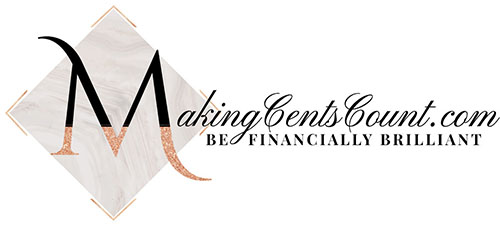Understanding Socially Responsible Investing (SRI): Should You Follow Your True North?
Estimated reading time: 9 minutes
When it comes to investing and ethics, a lot of questions come up. Most of us want to put our money in companies we believe in; meaning, our true north. By definition, it’s our purpose and guides every decision. But, what happens when we may not fully understand socially responsible investing? Or, as it’s often referred to, SRI.
Table of Contents
- Understanding Socially Responsible Investing: What Does SRI Really Mean?
- Why Are SRIs Such a Popular Option?
- How Deep Do SRI Ethics Go?
- Can I Invest in SRIs Through My Employer-Sponsored Qualified Retirement Plan?
- Why You Should Always Do Your Research
- Financial Success Society Membership
- Making Cents Count Financial Organizer
Are you ready to start investing, control your finances, and prepare for retirement? Join our amazing community! You’ll receive exclusive financial tips from Making Cents Count, as well as unlimited FREE access to our resource library full of money-saving tools and guides.
So, I thought it would make sense to explore what socially responsible investing really entails. You may have heard of SRIs, versus what is known as “Sin Stocks.” Between the two, you can just about guess which one is sexier to discuss at dinner parties!
While sin stocks may sound exciting (and they definitely have a place in the investment world), SRIs are the investments that really make you feel good. When you invest in SRI’s, you’re following your true north — again, your internal compass. You’re putting your money in a business you really believe in.
Sound appealing? Here’s what you need to know to understand socially responsible investing.
Understanding Socially Responsible Investing: What Does SRI Really Mean?
When we think “social responsibility,” we may think of ethics, the environmental movement, or the social and civil causes of the 60s, 70s, 80s, and 90s through today.
But SRIs have actually been around for longer than the last several decades. In fact, they started in the early 1950s. This was long before investors thought about going “green” or the concept of sustainability. The primary goal of SRIs was to seek out the best investments that produce a benefit to society.
While this may sound like a hippie-dippy concept, it goes much deeper. Most investors want to spend their money on causes they feel good about supporting. We even see this concept reflected in retail. Consumers love “cause marketing,” and studies show they prefer to spend with ethical companies.
So, it follows that investors would also love the idea of SRIs. Socially responsible investing means seeking out investments that bring about positive change. Many funds are successful because they are SRIs. As both experienced and new investors become more aware of ethical and social principals — especially the ones that hold personal meaning to them — these funds continue to grow.
Why Are SRIs Such a Popular Option?
As you may recall, mutual funds are a group of stocks that investment companies pool together. The shares are often complementary or competitive, making up the “mutuality.”
I have several resources on mutual funds in our free resource library. So, if you’d like to learn more about mutual fund options, those materials will help you begin your research.
With an SRI mutual fund, these feel-good-funds are made up of securities that undergo a high-level screening process. Many ethical factors weight the securities and the range of fund options reflect this spectrum. Funds may be built around social, moral, environmental, or religious beliefs. The fund company does careful screening to ensure the individual stocks share complimentary values and align with the target investors’ beliefs.
How Deep Do SRI Ethics Go?
Now, there are SRI options to fit almost any ethical area or belief. If you dig deep enough, you’ll learn how specific some SRI options can get.
Faith-Based SRI Funds
I researched faith-based SRI funds. In my research, I found the Presbyterian-specific New Covenant Funds. On their website, they explain that “New Covenant Funds make investment decisions consistent with the social-witness principles adopted by the General Assembly of the Presbyterian Church (U.S.A.). These policies flow from our faith and stewardship of God’s resources entrusted to the Church. They factor into our choices of where to invest (and where not to). And they guide the way we engage with the companies whose shares we hold.”
Then I found the Aquinas Catholic Equity Fund for Catholics. On their website, they indicate that the “selection of securities is guided by investment guidelines set forth by the United States Conference of Catholic Bishops.”
I also found Islamic funds, specifically the Amana Trust Income Fund (AMANX). The Amana Trust Income Fund avoids investing in companies that derive more than 5% of their revenue from the liquor, pornography, gambling, and banking industries. They also favor companies that uphold Islamic law and teachings.
Jewish funds are available through Calvert Funds where funding supports causes aligned with Jewish values and guidelines. The list goes on.
How to Review SRI Options
As you review these many SRI options, you’ll notice how specific and pointed these particular funds are. But not all religious funds follow the main tenants or principles of a specific religion or philosophy. For example, some funds require only a certain portion of their shares follow the guidelines. If understanding exactly where your investment goes is critical to your comfort, then you should do plenty of research to ensure you’ve chosen an SRI aligned to your values.
Can I Invest in SRIs Through My Employer-Sponsored Qualified Retirement Plan?
If socially responsible investing seems essential to you, then you may want to look at the way you’ve invested through your employer-sponsored qualified retirement plan.
The SRI preferences of investors and employers are becoming more and more aligned. Both parties want sustainable and impactful socially responsible investment options. So, it’s only a matter of time before more SRIs are available through employer-sponsored qualified retirement plans. While right now, the SRI options are often limited (depending on your employer and industry), times are changing. Studies have shown that up to 61% of workers indicate they would like to see the availability of SRIs and the options would make them increase their retirement investment.
Corporate Social Responsibility
As Klaus Schwab said, “Corporate social responsibility is measured in terms of businesses improving conditions for their employees, shareholders, communities, and environment. But moral responsibility goes further, reflecting the need for corporations to address fundamental ethical issues such as inclusion, dignity, and equality.”
Employees want to invest in ways they feel good about. They want to know their retirement funds are helping others and supporting causes and businesses aligned with their values. This turn toward sustainability and responsibility is increasing as socially conscious Millennials drive the workforce.
Why You Should Always Do Your Research
So, now we’ve touched on just a few of these feel-good-funds and we’re feeling pretty darn good about our investment options, right?
Well, before jumping into SRI investments, you must research the funds thoroughly. Not to burst the current good vibes, but when we look back at the 2008 mortgage and financial crisis. As you may recall, many SRIs were involved with the scandals. So, doesn’t that make those SRIs sin-based, rather than responsibility-based?
These companies were claiming to be responsible and ethical, but they put people in homes they clearly couldn’t afford. Institutions were fully aware of their actions and they obviously weren’t striving to bring positive change in the world. In fact, many people were financially ruined because of this predatory lending and unethical investing. I share this not to make you feel guilty or bad about investing, but to help you realize that it’s crucial to think twice about funds you consider moral and ethical. With some proper research, you can separate the bad, predatory players from the ethical options.
SRIs Versus Sin Stocks
If you’re curious about the other side of the coin, “sin stocks,” they’re often the very securities that SRIs purposely avoid (typically, less than 5% of their funds can be from sin stocks). Sin stocks are from companies involved in the promotion of alcohol, tobacco, gambling, sex-related industries, weapons manufacturers, and now the bustling marijuana industry. Sin stocks and SRIs are the yin-yangs of investing, but it’s never completely black and white.
If socially responsible investing appeals to you, remember to do your research and learn exactly what the investment entails. Learn what you’re investing in and how the money is allocated. Never allow anyone to push you or guilt you toward an investment you aren’t 100% comfortable with. Remember, it’s your money!
Financial Success Society Membership
I tell our members of the Financial Success Society, if you’re not comfortable with the investment or the person offering it to you, feel free to walk away! Don’t move forward until you understand fully what’s being presented to you along with the reason why.
If working on your finances is one of your goals right now (or, maybe it’s been a goal for some time), I suggest starting with the Making Cents Count Financial Organizer.
Our financial organizer is the robust answer you need. The organizer is our DIY financial services option, providing you with the tools to eliminate financial overwhelm.
In the exclusive Making Cents Count Financial Organizer, you’ll get:
- Clear strategies to get your finances under control
- Processes to organize and streamline your investments
- Guidance to track your legal documents, tax information, and permanent records
- Markers to know when you should meet with an attorney to establish a will or trust
- Templates, checklists, and step-by-step actions
- Insights on the financial-must haves to build a secure future
- Detailed How-To Guide for optimal results
If you want financial confidence, grab the Financial Organizer, and get results that fit *your* lifestyle!
Making Cents Count Financial Organizer
Once you get your budget rolling, check out my post on 6 Simple Steps to Get Financially Organized. This post also includes a helpful checklist available in my Resource Library (free to access).
Admittedly, this particular checklist has a larger-scale focus on your overall financial picture, but I genuinely feel that getting your finances organized is essential.
I’m so excited to invite you to join our Financial Success Society Waitlist! Our enrollment opens soon (so don’t miss a chance to get on the notification list). Your journey to financial success is unique and with this exclusive membership, you’ll receive the guidance you desire, enabling you to move financially forward, no matter where you are in your financial journey. At Making Cents Count, we offer an array of outstanding products and services to help you get control of your finances so they won’t control you!







